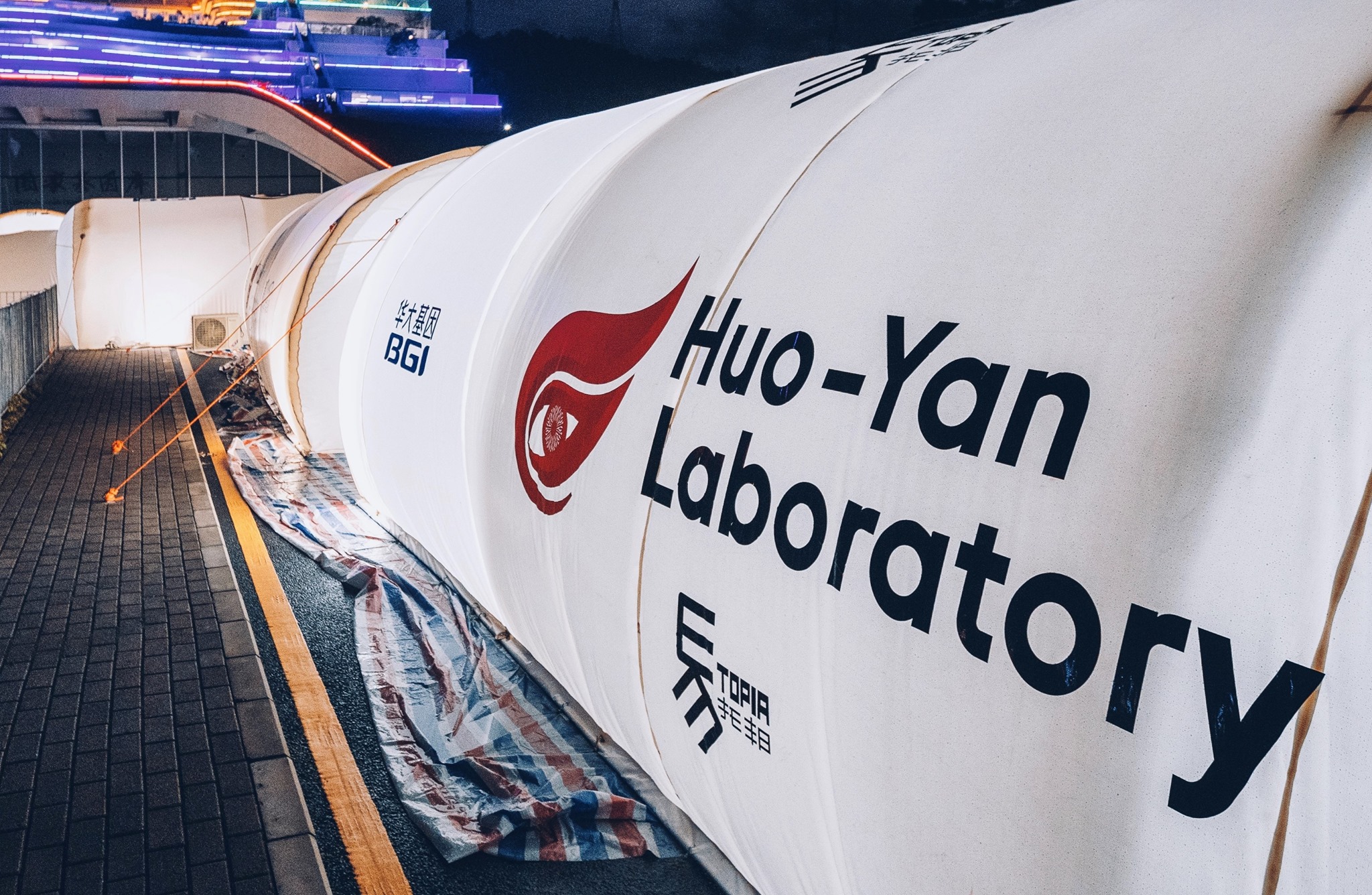
BGI Genomics: Helping Hong Kong citizens in the fight against the pandemic with daily inspection of more than 5,000 samples with strict confidentiality. The third wave of the new coronavirus pandemic broke out in Hong Kong recently. The daily number of confirmed cases continues to rise. Many of the cases are of unknown origin. Epidemic prevention and anti-epidemic situation are extremely severe. The Hong Kong government has introduced two private mainland organizations to conduct free new coronavirus tests for high-risk groups of more than 400,000 people in Hong Kong. One of these organizations is the Huasheng Diagnostic Center opened by BGI.
Wang Shihua, manager of BGI’s genetic laboratory in Hong Kong, said in an exclusive interview with our reporter that the current testing center cooperates with medical institutions and adopts automated testing methods. It can test about 5,000 samples per day and issue a test report in only half a day. At the same time, people’s privacy will be kept strictly confidential, hoping to help the Hong Kong government effectively control the epidemic as soon as possible.
Based on the anti-epidemic experience in Beijing, South Korea, and other places, as well as the recommendations of the World Health Organization, virus testing is currently the fastest and most effective way to locate and track cases including “invisible communicators” and cut off the local transmission chain. Recently, the epidemic situation in Hong Kong has changed drastically. Many Hong Kong citizens flocked to the border, hoping to return to the mainland to avoid the epidemic. Guangdong Province announced that from 10 am on July 17th, except for approved personnel, those entering Hong Kong from Hong Kong must hold a valid nucleic acid test negative certificate within 72 hours (3 days), and they will still be compulsory for 14 days after entry In quarantine, Hong Kong citizens’ demand for nucleic acid testing has increased rapidly.
Wang Shihua said that due to the rapid increase in the amount of testing, the original manual testing method was cumbersome and took 4 hours to produce the results, which could not meet the current huge testing needs. At the same time, to help high-risk community groups perform testing and screening, automated nucleic acid was introduced. The extraction instrument, coupled with the upgrade and transformation of the laboratory, only needs 5 to 6 chemists and can do about 5000 tests every day, which replaces nearly 10 times the manpower requirement. I believe that with the increase of automated nucleic acid extraction instruments in the future, The detection volume will increase exponentially.
In Hong Kong’s current medical system, Hong Kong usually uses foreign reagents. The cost is high and the supply is unstable. Taking German-made reagents as an example, each kit costs about 600 yuan. As for the remaining costs, including nucleic acid testing machines, laboratory quality control, and certification costs, most institutions still cost as high as 1,500 to 2,500 yuan per time.
Wang Shihua said that BGI has taken the lead in completing the research and development of the new coronavirus nucleic acid detection kit in early 2020 and quickly produced it. It has been supplied to more than 180 countries and regions around the world. It has been certified by different medical authorities such as the United States, Europe, and Japan. It has also been certified by the World Health Organization. The organization is included in the emergency use list (WHO EUL). BGI has been preparing to produce reagents locally in Hong Kong and hopes that 100% of the reagents will be produced in Hong Kong in the future to meet the growing demand for testing. I believe that the cost of each test can be reduced to less than 1,000 yuan.
Wang Shihua also pointed out that the inspection center collects throat samples for testing, instead of the deep throat saliva samples commonly used in Hong Kong, because Hong Kong’s methods are time-limited. “It can only be taken in the morning before brushing your teeth. We believe that in such a severe situation of the epidemic. It’s very inconvenient. The deep throat saliva collection bottle is 70ml. If 1,000 samples are to be collected, the inspection center will have to deal with 1,000 plastic bottles, which will cause huge work pressure and is not environmentally friendly.”
Regarding certain opposition groups intimidating citizens and stating: “If mainland institutions conduct nucleic acid tests, sensitive privacy information will be sent to the mainland.” In an attempt to create social panic and undermine Hong Kong’s anti-epidemic work, Wang Shihua said that under Hong Kong’s laws and regulations according to the requirements of the American Society of Pathology, the information received by the testing center generally only has a serial code, and at most only the name of the patient is known. No other personal information will be received. Except for the virus-positive samples, they will be sent to the Department of Health. Other samples will be destroyed and will not be sent back to the Mainland. The public need not worry.